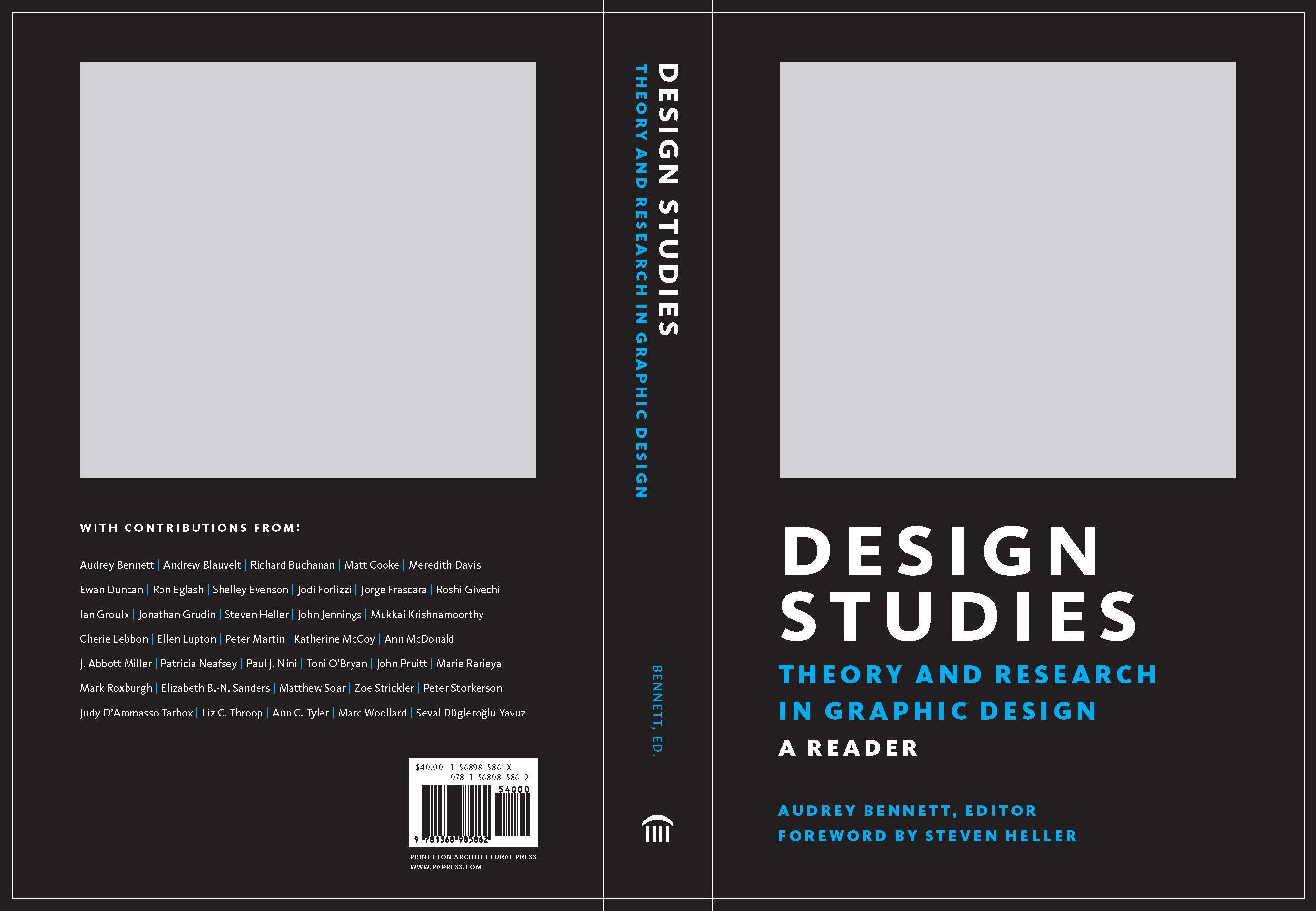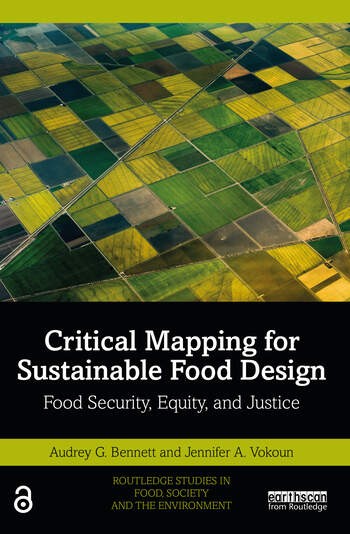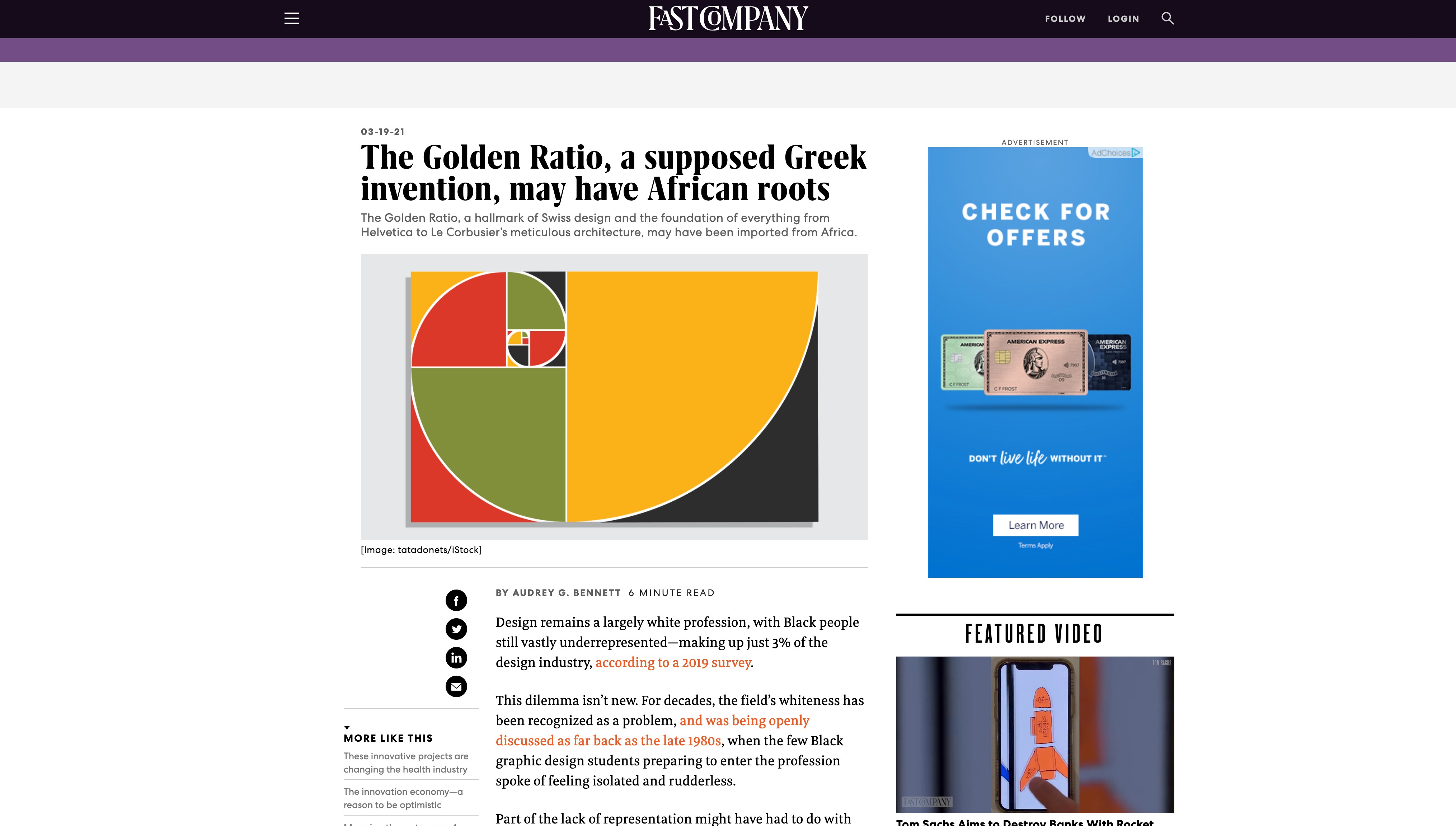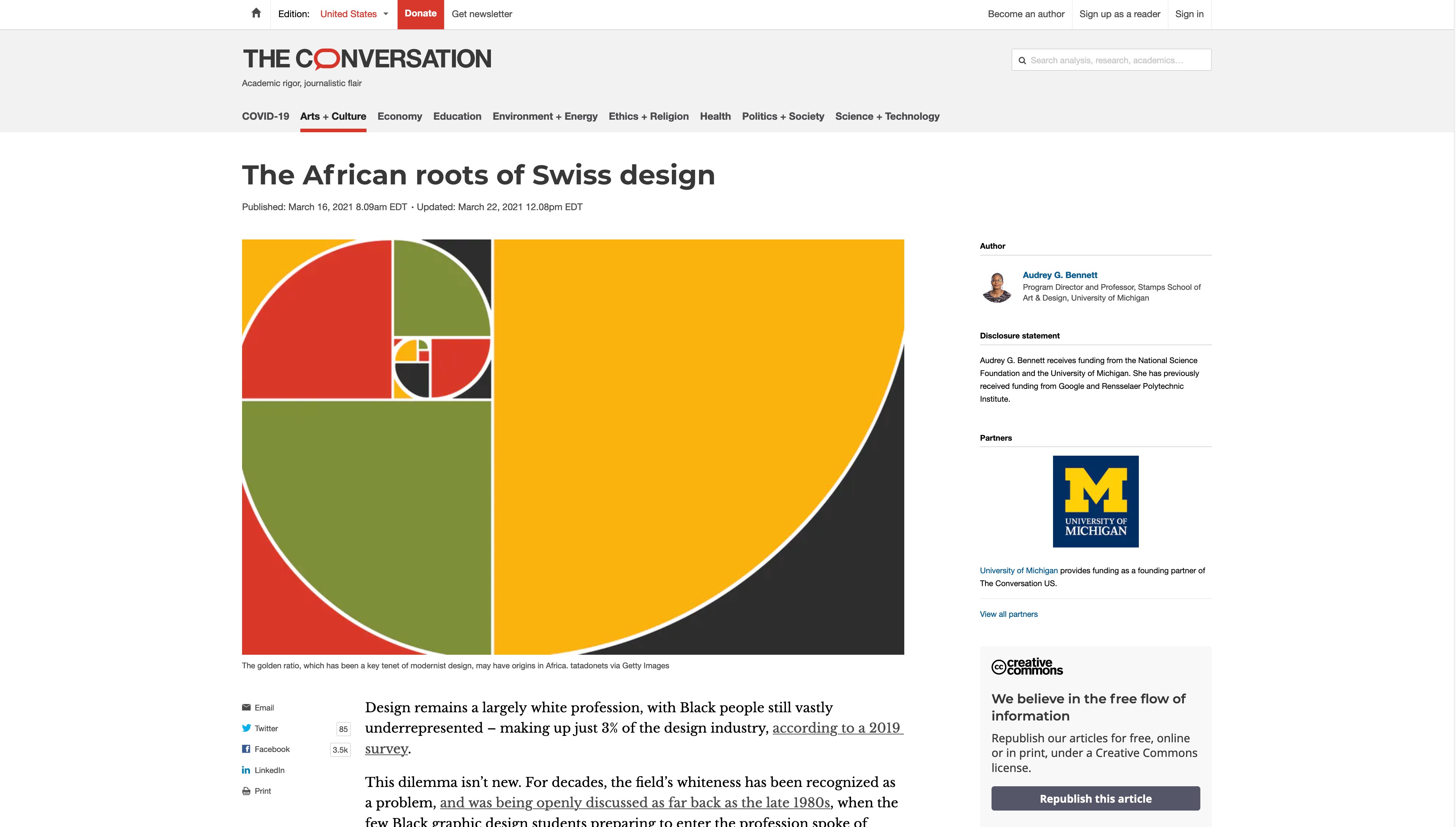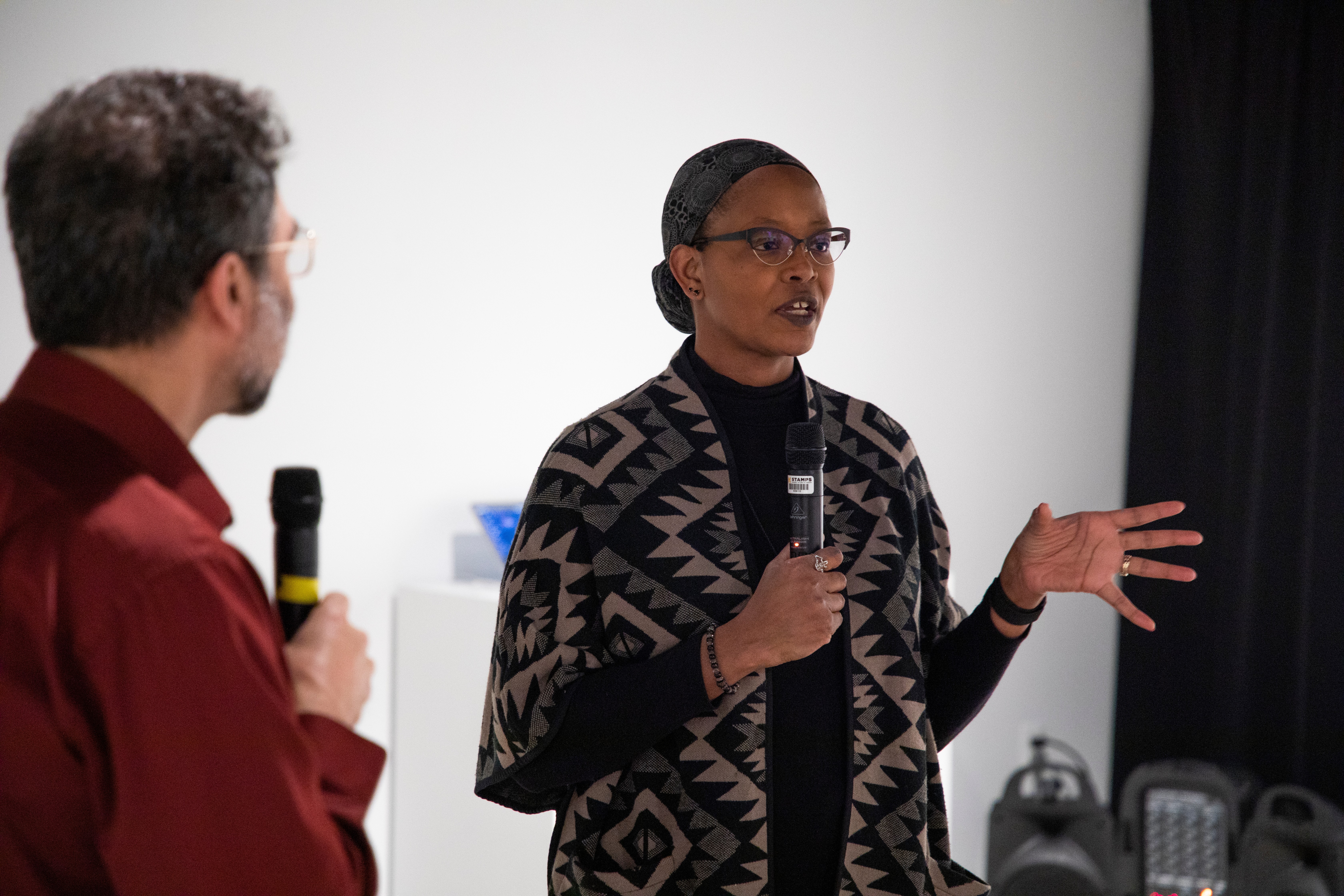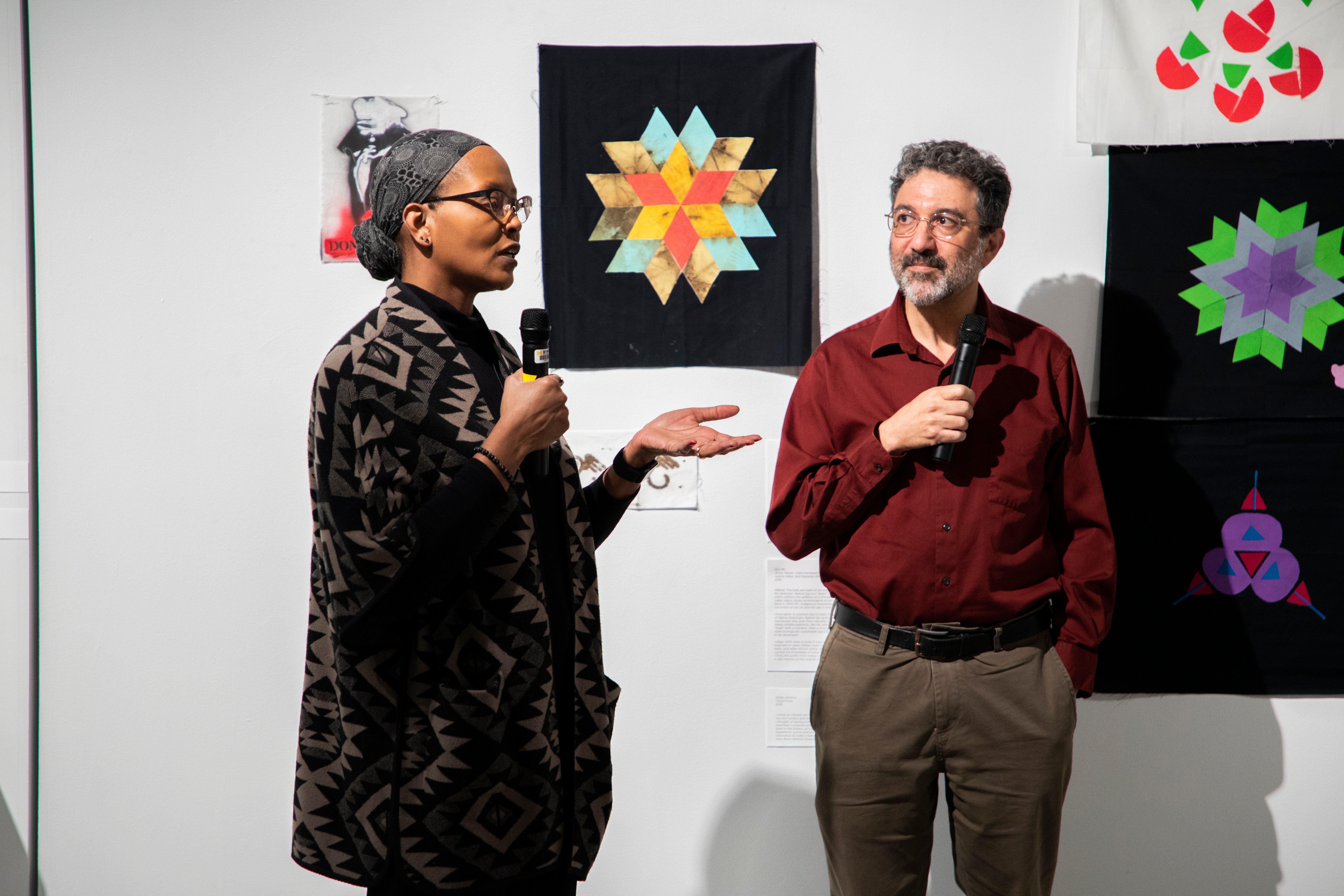
Today we’d like to introduce you to Audrey Bennett.
Alright, so thank you so much for sharing your story and insight with our readers. To kick things off, can you tell us a bit about how you got started?
I am a naturalized American scholar of Afro-Caribbean descent. I hail from Nassau, Bahamas, where I lived for the first three years of my life before moving to my parent’s birthplace of Jamaica. After three years there, my family migrated to the United States. I grew up in northern New Jersey with a mother who made us Caribbean food every day, played reggae music every Saturday morning, and had a mix of Jamaican patois and standard English that showed me what an artist can do with language. At the inner-city elementary and secondary schools I attended, my teachers spoke standard English, but the hallways were ruled by yet another kind of language arts, the dialect of Black urban identity nurtured by a growing hip hop movement. Graduating valedictorian from my high school, I traveled further north to pursue an undergraduate degree at Dartmouth College, allowing me to study Spanish in Querétaro, Mexico. These multilingual and multicultural experiences, among others, molded me into the art and design scholar I am today. I have a firm, unwavering belief that cross-cultural literacy plays a critical role in creating effective print and digital media.
The rest can be gleaned from my bio here: https://www.
Alright, so let’s dig a little deeper into the story – has it been an easy path overall, and if not, what were the challenges you’ve had to overcome?
The following are excerpts from a conference paper: “Defining and executing a graphic design research agenda (if only for the sake of justice”). I think it captures what I wrote about the professional challenges I’ve experienced along the way:
Within academia, particularly research institutions, graphic designers with terminal Master of Fine Arts degrees face a daunting requirement to do research to achieve tenure, which can be all at once exhilarating, intimidating, and confounding. However, starting the tenure process with a research agenda can ease these conflicting and often paralyzing feelings and set one’s scholarly career on the path towards groundbreaking research that contributes new knowledge to one’s discipline, qualifies one for tenure at a research university, and at the same time can even help to make the world a better place.
I recall vividly the excitement that I felt securing a tenure-track position in graphic design at a research university over twenty-one years ago. As a graphic designer with a terminal Master of Fine Arts (M.F.A.) degree, I had been formally trained in conceptual, visual design practice and had the opportunity to gain some professional experience applying my newfound knowledge to visually translating information into communicative, aesthetic, and meaningful outcomes. As to be expected at that time, the manifestations of my expertise and experience took form predominantly as corporate identity materials that aimed to sell brands, products, and ideas. However, in my new role then, in 1997, as a tenure-track assistant professor at a research university, I began asking myself, with an extreme sense of urgency (and fright) as the six-year tenure clock ticked seemingly faster and louder than the real clock on my office wall 1) What is research? 2) How does it differ from service and practice? 3) How do I do research? Where do I begin? What form(s) would (and should) the outcomes of my research labor take? Why should I even bother to engage in research in the first place?
The latter question seemed to dominate my thoughts so much so that I decided during this probationary, tenure-track period of my early scholarly career to depart academia and return to industry where I felt I could make a real difference in the world and my heritage community through the practice of graphic design. To my benefit (but, more importantly, and arguably, to the benefit of society), before actuating my decision, I expressed my resolve to a colleague, a social scientist who was also an anthropologist from another department at my institution. My colleague’s response, in summary, was that pasteurization is theoretically grounded—as is racism. The thought of a beverage that I drink daily as interfacing with theory and evolving from the scientific research of Louis Pasteur (Kurlansky 2018, 180) perplexed me. Moreover, that racism—something that I have experienced interpersonally and systemically—has been nurtured by theory (Gould 1996) left me equally bewildered.
As I am a naturalized American design scholar of Afro-Caribbean descent who grew up economically disadvantaged in an inner-city in New Jersey, it became my mission at that point of my scholarly career to stay in academia and use research-generated theory to counter the legacy of racist theory with new findings that could lead to social justice.
Alright, so let’s switch gears a bit and talk business. What should we know about your work?
Here is a link to my website that documents my scholarship: https://www.
Also, here is my “thank you” speech for my recent national award through the foremost organization for graphic design regarding my scholarship:
“On Saturday, I received the 2022 AIGA Steven Heller Prize for Cultural Commentary. I am humbled to be recognized alongside this year’s AIGA medalists and corporate award winner and overwhelmed with gratitude to the AIGA award committee members who nominated and selected me.
I hail from the Caribbean, not by way of a cruise line or holiday tour but from families born into bondage who struggled first for survival, then resistance, and then struggled in that game where we are forced to pretend that we are given the same starting place, game pieces, and rules. So, I am especially thankful for those who made my journey here possible, and it is them that I honor with this award.
For me, writing is problem-solving, and early in my career, when faced with the threat of “publish or perish,” I confronted this threat by sitting down and writing about my research. I received professional counseling from several colleagues at Rensselaer Polytechnic Institute in Upstate New York whom I wish to thank now.
To my life and research partner, Dr. Ron Eglash, whom I met at Rensselaer Polytechnic Institute, thank you for instilling in me a firm understanding of theory’s role in changing the world and revealing the African fractals embedded in cultural practices, from cornrows to quilting. Because of your work, I have come to see these hidden treasures from my ancestors, and I also thank them for this legacy.
Before we let you go, we’ve got to ask if you have any advice for those who are just starting out.
It’s easy, when you are first starting out, to get frustrated by rejections or criticism, and start to feel like institutions and the elites that run them are hopelessly against you. But denying yourself access to critique, and not developing the skills to learn from it–to parse the needed changes from the noise–will be self-destructive. We often hear the quote from Laozi, translated as “A journey of a thousand miles begins with a single step.” But that makes it sound like it’s about the destination. A better translation is “a thousand mile journey begins where one stands”–you can find joy in repeating that feeling of the first step every day.
Contact Info:
- Website: https://www.
audreygbennett.com/ - Linkedin: https://www.
linkedin.com/in/audrey- bennett-a726931/ - Instagram: https://www.
instagram.com/prof_bennett/
